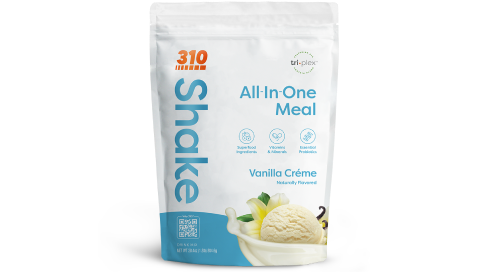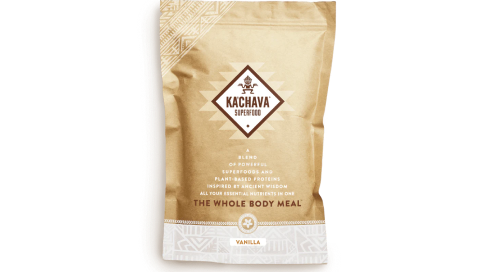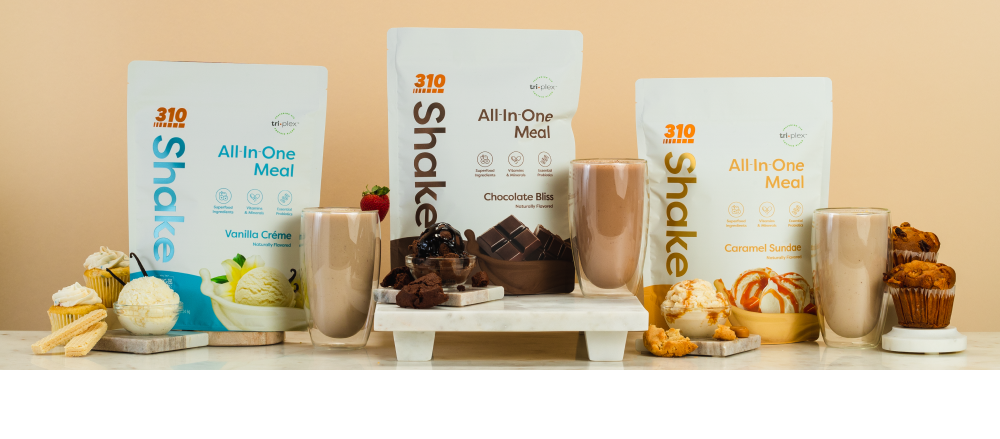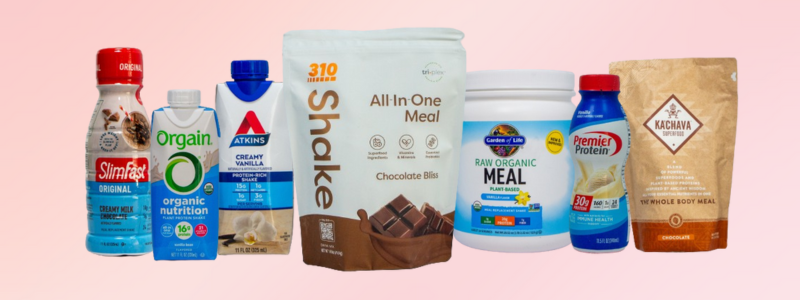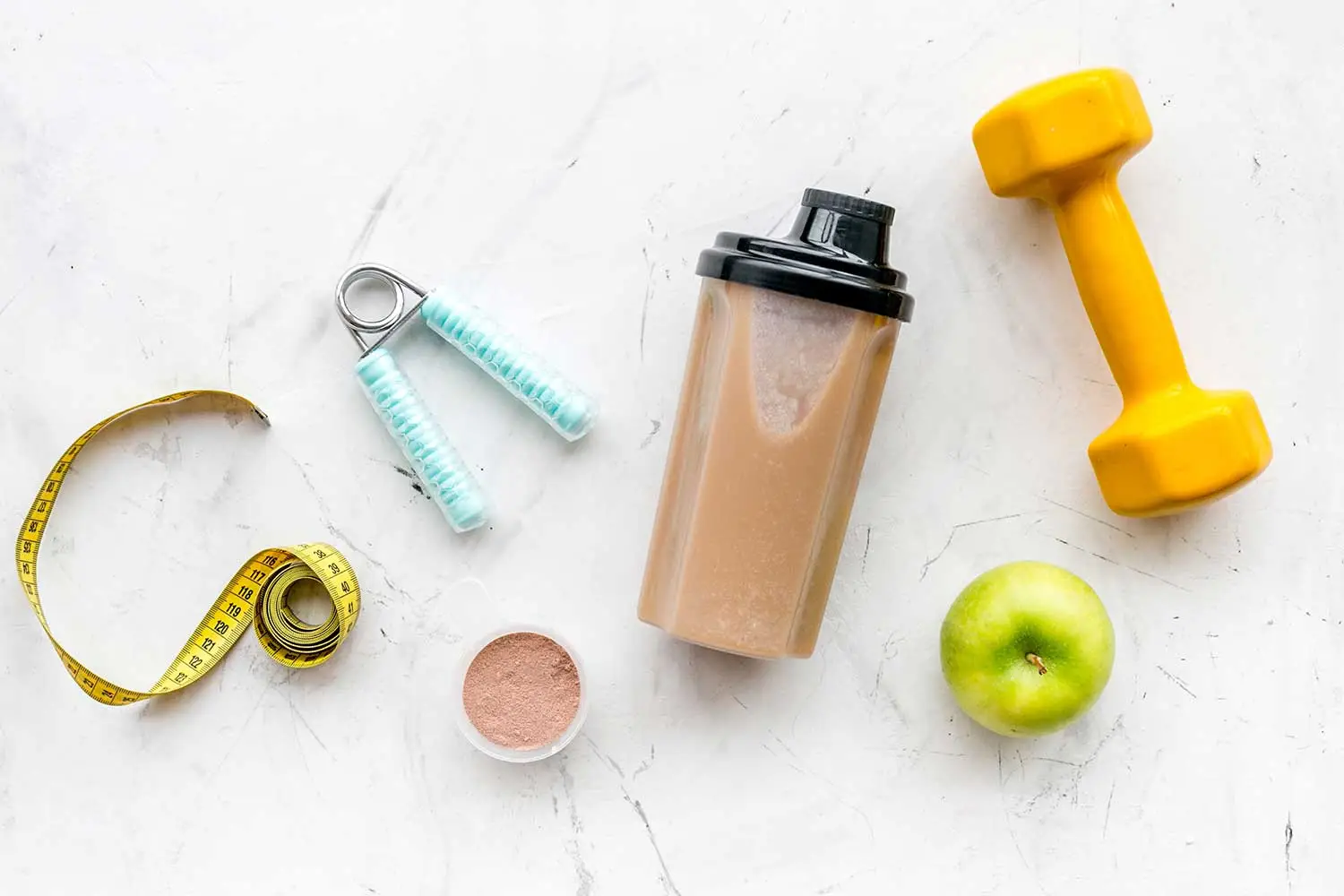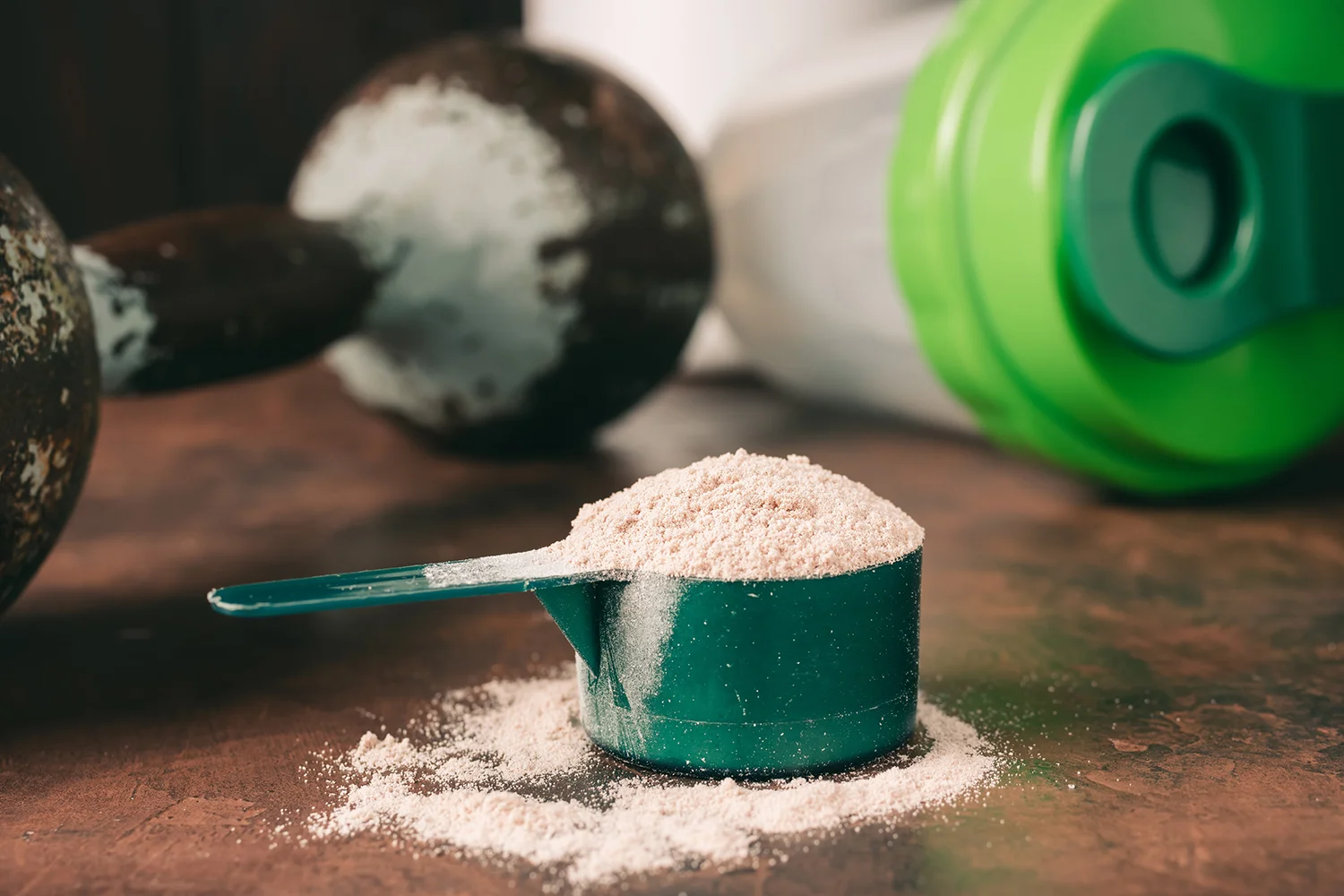Interested in 310 Shake by 310 Nutrition, or have a...
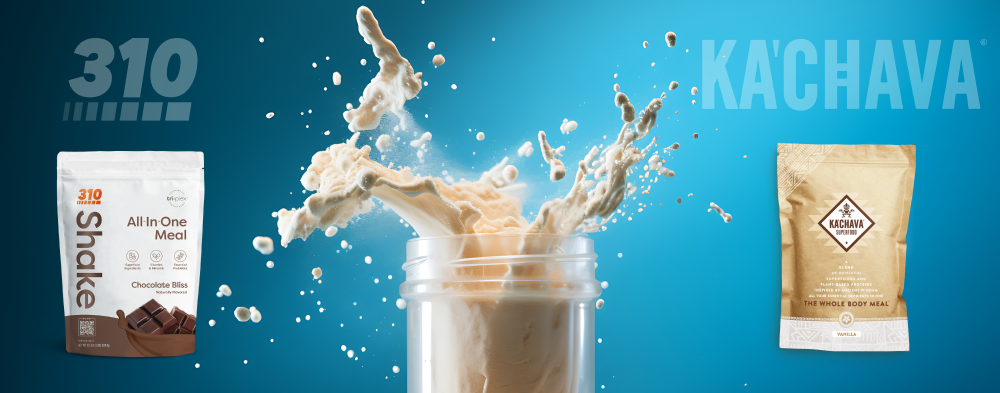
Comparing Meal Replacement Shakes:
Taste, Effectiveness, Nutrition, and Value for Money - We Found The Answers
While most people try to eat healthy, nobody has time to prepare balanced meals three or more times a day.
But there’s no denying that proper nutrition is essential in supporting your overall health and maintaining your energy levels, especially for those of us who live an active and demanding lifestyle.
That’s why meal replacement shakes are becoming increasingly popular.
They are by far the easiest way to consume a nutritionally complete meal on the go.
They’re also packed with essential nutrients that support your daily nutritional needs, provide sustained energy, and help manage your hunger.
However, not all meal replacement shakes are created equal.
The quality of ingredients and nutritional profiles can vary significantly between products and it can be hard to choose a meal replacement shake that gives you everything you need.
Thankfully, we’re here to help you sort through the options.
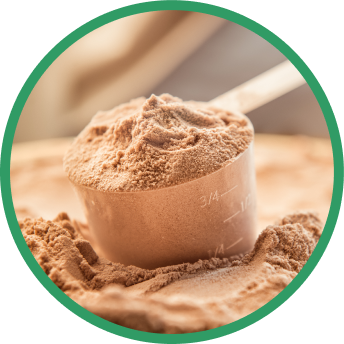
We’ve analyzed the top meal replacement shakes on the market and will show you what to look for regarding taste, effectiveness, nutritional content, and value for your money.
We’ll also share our top 2 picks to help you find the best meal replacement shake for your lifestyle.
First, let’s look at…
The Impact of Meal Replacement Shakes on Nutrition and Health
Increased Energy: Balanced nutrients can lead to improved daily energy levels
Improved Satiety: Helps curb hunger and reduce unhealthy snacking
Convenient Nutrition: Easy-to-prepare complete meals for busy lifestyles
Nutrient Gap Filling: Provides essential vitamins and minerals that might be missing from regular diets
Weight Management: Portion-controlled meals to support healthy weight goals
Digestive Support: Many contain ingredients that can promote gut health and easier digestion
Convenient Nutrition: Easy-to-prepare complete meals for busy lifestyles
Improved Satiety: Helps curb hunger and reduce unhealthy snacking
Increased Energy: Balanced nutrients can lead to improved daily energy levels
Nutrient Gap Filling: Provides essential vitamins and minerals that might be missing from regular diets
Weight Management: Portion-controlled meals to support healthy weight goals
Digestive Support: Many contain ingredients that can promote gut health and easier digestion
Why You Should Consider A Meal Replacement Shake

More Comprehensive Than Individual Supplements
Unlike single-nutrient supplements, meal replacement shakes offer a balanced blend of macronutrients (proteins, carbs, fats) and micronutrients (vitamins and minerals). This comprehensive approach can be more effective in supporting overall health and nutrition.

Complete, Balanced Nutrition
Quality meal replacement shakes are formulated to provide a nutritionally complete meal, offering a balance of proteins, carbohydrates, healthy fats, fiber, vitamins, and minerals. This ensures you’re getting a wide range of essential nutrients in one convenient serving.

Support for Busy Lifestyles
In today’s fast-paced world, many people struggle to prepare balanced meals consistently. Meal replacement shakes offer a quick, convenient solution for those who might otherwise skip meals or resort to unhealthy fast food options.

Aid in Portion Control and Weight Management
With pre-measured servings, meal replacement shakes can help control calorie intake, making it easier to manage weight goals. They can satisfy hunger while providing balanced nutrition, potentially reducing overall calorie consumption.

Customizable to Individual Needs
Many meal replacement shakes come in various flavors and formulations, allowing users to choose options that suit their taste preferences and specific nutritional needs. Some are tailored for different goals like weight loss, muscle gain, or general wellness.

Potential for Improved Nutrient Absorption
Quality meal replacement shakes often contain easily digestible forms of nutrients and may include ingredients that support gut health. This can potentially lead to better nutrient absorption compared to eating processed foods or taking multiple individual supplements.
What To Look For In a Meal Replacement Shake
Nutritional Balance: Look for a product that provides a good balance of proteins, carbohydrates, and healthy fats, along with essential vitamins and minerals.
Protein Quality and Quantity: Ensure the shake contains high-quality protein sources and an adequate amount to keep you satisfied and support muscle health.
Ingredient Quality: Check for natural, whole food ingredients rather than artificial additives or fillers.
Taste and Texture: Since you’ll be consuming this regularly, it should be enjoyable. Look for flavors you like and a smooth, non-chalky texture.
Calories and Serving Size: Make sure the calorie content aligns with your nutritional needs and weight management goals.
Dietary Considerations: If you have specific dietary requirements (vegan, gluten-free, etc.), ensure the product meets these needs.
Price and Value: Consider the cost per serving and how it compares to your usual meal expenses.
Mixability and Convenience: The shake should be easy to prepare, whether you’re at home or on-the-go.
Brand Reputation and Reviews: Look for well-established brands with positive customer feedback and transparent practices.
Specific Health Benefits: Some shakes may offer additional benefits like probiotics for gut health or added fiber for digestion.

Nutritional Balance: Look for a product that provides a good balance of proteins, carbohydrates, and healthy fats, along with essential vitamins and minerals.
Protein Quality and Quantity: Ensure the shake contains high-quality protein sources and an adequate amount to keep you satisfied and support muscle health.
Ingredient Quality: Check for natural, whole food ingredients rather than artificial additives or fillers.
Taste and Texture: Since you’ll be consuming this regularly, it should be enjoyable. Look for flavors you like and a smooth, non-chalky texture.
Calories and Serving Size: Make sure the calorie content aligns with your nutritional needs and weight management goals.
Dietary Considerations: If you have specific dietary requirements (vegan, gluten-free, etc.), ensure the product meets these needs.
Price and Value: Consider the cost per serving and how it compares to your usual meal expenses.
Mixability and Convenience: The shake should be easy to prepare, whether you’re at home or on-the-go.
Brand Reputation and Reviews: Look for well-established brands with positive customer feedback and transparent practices.
Specific Health Benefits: Some shakes may offer additional benefits like probiotics for gut health or added fiber for digestion.
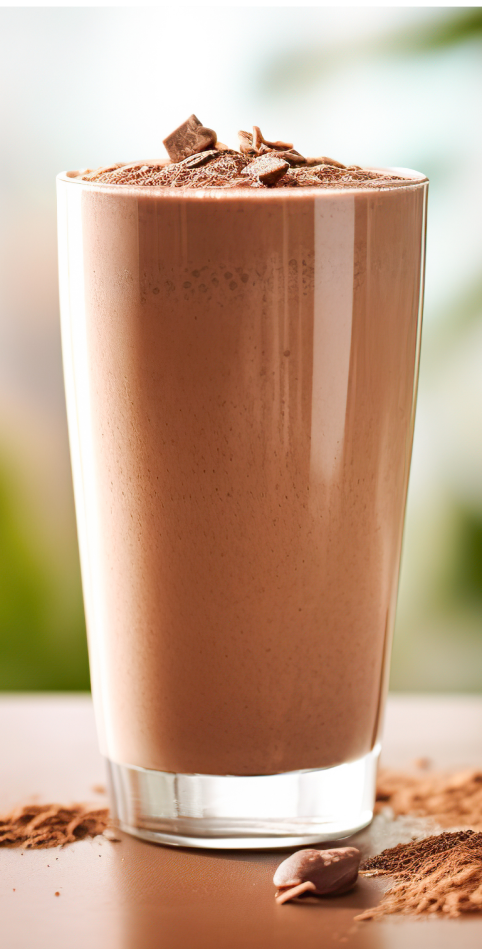

What to Avoid
Contain Excessive Added Sugars: High sugar content can lead to energy crashes and may hinder weight management goals.
Use Artificial Sweeteners, Flavors, or Colors: These additives may cause digestive issues for some people and don’t contribute to nutritional value.
Lack Adequate Protein: Insufficient protein can leave you feeling hungry soon after consuming the shake.
Have Too Few Calories: Extremely low-calorie options may not provide enough energy or nutrients to truly replace a meal.
Contain Low-Quality Protein Sources: Avoid products that use inferior protein types that may be harder to digest or less complete in their amino acid profile.
Include Unhealthy Fats: Steer clear of shakes with trans fats or excessive saturated fats.
Make Exaggerated Health Claims: Be skeptical of products promising unrealistic results or miracle cures.
Lack Essential Vitamins and Minerals: A good meal replacement should provide a wide range of micronutrients.
Have a Long List of Unrecognizable Ingredients: This often indicates the presence of unnecessary fillers or additives.
Are Not Third-Party Tested: Products without independent quality verification may not meet their claimed nutritional standards.
What Else To Consider
Your Specific Health Goals: Whether you’re aiming for weight loss, muscle gain, or general wellness, choose a shake that aligns with your objectives.
Dietary Restrictions: If you have allergies, intolerances, or follow a specific diet (like vegan or keto), ensure the shake is compatible.
Lifestyle Factors: Consider how the shake fits into your daily routine. Do you need something quick for busy mornings or a post-workout option?
Frequency of Use: Determine how often you plan to use the shake as a meal replacement and choose a product suitable for that frequency.
Taste Preferences: Since you’ll be consuming this regularly, it’s crucial to choose flavors you enjoy.
Mixability and Preparation: Consider whether you prefer shakes that can be mixed with just water or if you’re willing to blend with other ingredients.
Packaging and Portability: If you’re often on-the-go, look for convenient packaging options like single-serve packets.
Subscription Options: Some brands offer subscribe-and-save options which can be cost-effective for regular users.
Environmental Impact: If sustainability is important to you, consider the company’s environmental practices and packaging materials.
Additional Functional Ingredients: Some shakes include extras like probiotics, adaptogens, or green superfoods. Decide if these align with your needs.
Customer Support and Return Policy: Choose brands with good customer service and fair return policies if the product doesn’t meet your expectations.
With all that said…
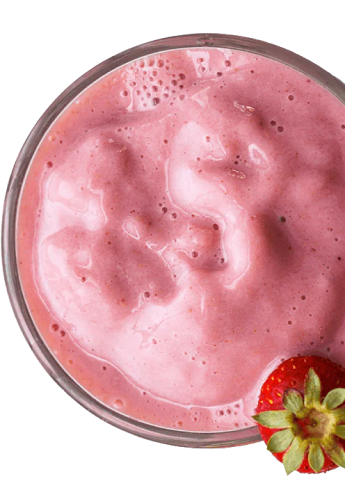
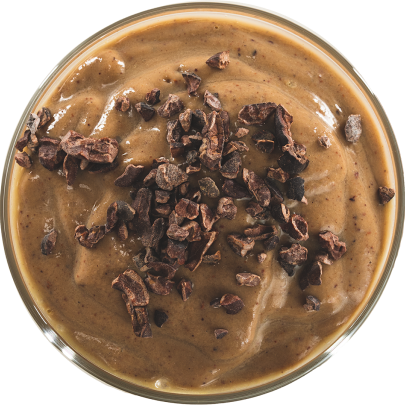


Here Are Our Top Two Meal Replacement Picks
- Calories
- Fat
- Saturated Fat
- Carbohydrates
- Dietary Fiber
- Sugar
- Protein
- Cholesterol
- Flavor Variety
- Controversial Ingredients
- Superfoods
- 110g
- 3g
- 1g
- 6g
- 5g
- 0g
- 15g
- 0mg
- Wider Variety
- ✖
- ✔
Price per bag (Subscription) $39
- 120g
- 3.5g
- 2.25g
- 12g
- 3g
- 3g
- 12.5g
- 0mg
- Limited Flavors
- ✖
- ✔
Price per bag (Subscription) $59.95
- Calories
- Net Carbs
- Sugar
- Protein
- Total Fat
- Dietary Fiber
- Artificial Sweetener
- Superfoods
- Controversial Ingredients
Nutrition And Health Benefits
310 Nutrition
310 Shake offers a well-balanced nutritional profile with 15g of protein, 5g of fiber, and only 110 calories per serving.
It contains zero sugar and fewer carbs (6g), making it ideal for those watching their sugar and carbohydrate intake.
The Tri-Plex Protein Blend, which includes pea protein isolate and brown rice protein, provides a complete amino acid profile essential for body growth and maintenance.
The shake also incorporates a blend of vitamins and minerals, contributing to overall health and wellness.
Ka'Chava
Convenience And Ease of Preparation
310 Nutrition
310 Shake easily mixes with water or your choice of milk for a quick and smooth shake.
Users report that it blends well without clumping, providing a consistent texture.
The shake’s versatility allows it to be incorporated into various recipes, such as smoothies or baked goods, adding to its convenience factor.
This flexibility makes it easy to integrate into different lifestyles and dietary preferences.
Ka'Chava
Ka’Chava is also marketed as simple to prepare, but some users report issues with texture and clumping.
This can lead to a less enjoyable drinking experience and may require additional effort to achieve a smooth consistency.
Taste And Satisfaction
310 Nutrition
310 Shake offers a wider variety of flavors, including classics like chocolate and vanilla, as well as unique options like salted caramel and mocha.
This diverse range caters to various taste preferences, allowing users to find flavors they enjoy.
Users consistently praise its taste and creamy texture, with the vanilla cream flavor receiving particular acclaim for its balanced sweetness and satisfying mouthfeel.
Ka'Chava
Ka’Chava has more limited flavor options.
While some flavors like vanilla are well-received, others like chocolate have mixed reviews.
The taste profile may not be as universally appealing as 310 Shake, potentially leading to flavor fatigue for some users.
Quality of Ingredients
310 Nutrition
310 Shake uses high-quality, plant-based ingredients without artificial additives.
The formula is designed to be free from common allergens, making it suitable for those with dietary restrictions.
It prides itself on keeping additives to a minimum, catering to those who seek simplicity in their shakes.
Ka'Chava
Ka’Chava also uses plant-based ingredients and superfoods, but the higher sugar content may be a concern for some users.
While it’s free from common allergens like soy, dairy, and gluten, the overall ingredient list may feel less refined compared to 310 Shake.
Effectiveness for Specific Goals
310 Nutrition
310 Shake is specifically designed to support weight management and overall health.
Its lower calorie and carb content, combined with high protein and fiber, make it excellent for those focusing on weight loss or maintenance.
The balanced macronutrient profile helps promote satiety and supports muscle maintenance during weight loss efforts.
Ka'Chava
Ka’Chava, while nutritious, has a higher calorie and carb content that may not align as well with weight management goals.
Its focus seems to be more on providing a nutrient-dense meal replacement rather than specifically supporting weight loss efforts.
Final Thoughts
In conclusion, while both shakes offer good nutritional benefits, 310 Shake stands out as the superior choice.
Its balanced macronutrient profile, wider flavor variety, and effectiveness for weight management make it an excellent option for those seeking a healthier lifestyle.
The lower price point of 310 Shake ($39 per bag with subscription vs. $59.95 for Ka’Chava) also provides better value for consumers looking for a premium meal replacement option.
RV Team
Related Articles
Best Meal Replacement Shakes for Weight
Meal replacement shakes for weight loss are specially formulated nutritional...
How to Use Meal Replacement Shakes
Meal replacement shakes are basically those handy-dandy drinks that come...
* Reviewology is in partnership or collaborates with top brands highlighted on this site, including those occupying the top ranking positions.
Additionally, we earn affiliate commissions from products showcased on this website when you make a purchase through the provided links on Amazon or the company website directly.
We appreciate your support using our links to purchase your favorite brands or newly discovered brands.
Latest updates
I Thought I’d Always Feel Tired, Fat, and Forgotten—Until This
310 Greens vs AG1
The Truth About 310 Greens: A No-Nonsense Review of This Popular Supplement
Popular
I Thought I’d Always Feel Tired, Fat, and Forgotten—Until This
310 Greens vs AG1
The Truth About 310 Greens: A No-Nonsense Review of This Popular Supplement
© 2024 Reviewology. All Rights Reserved.
